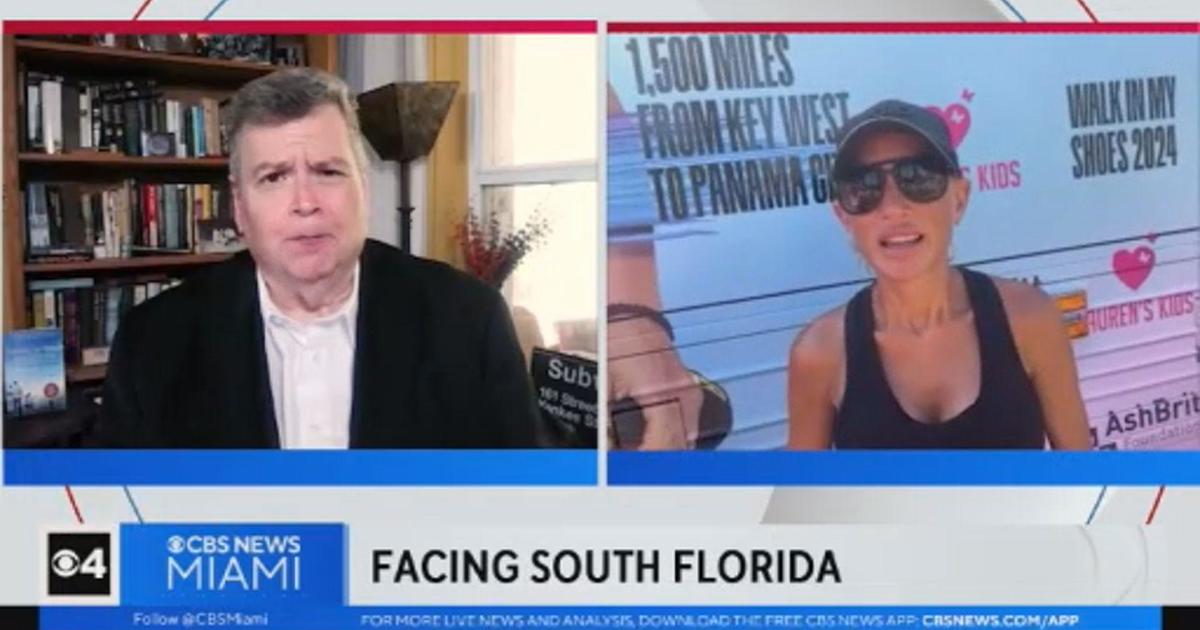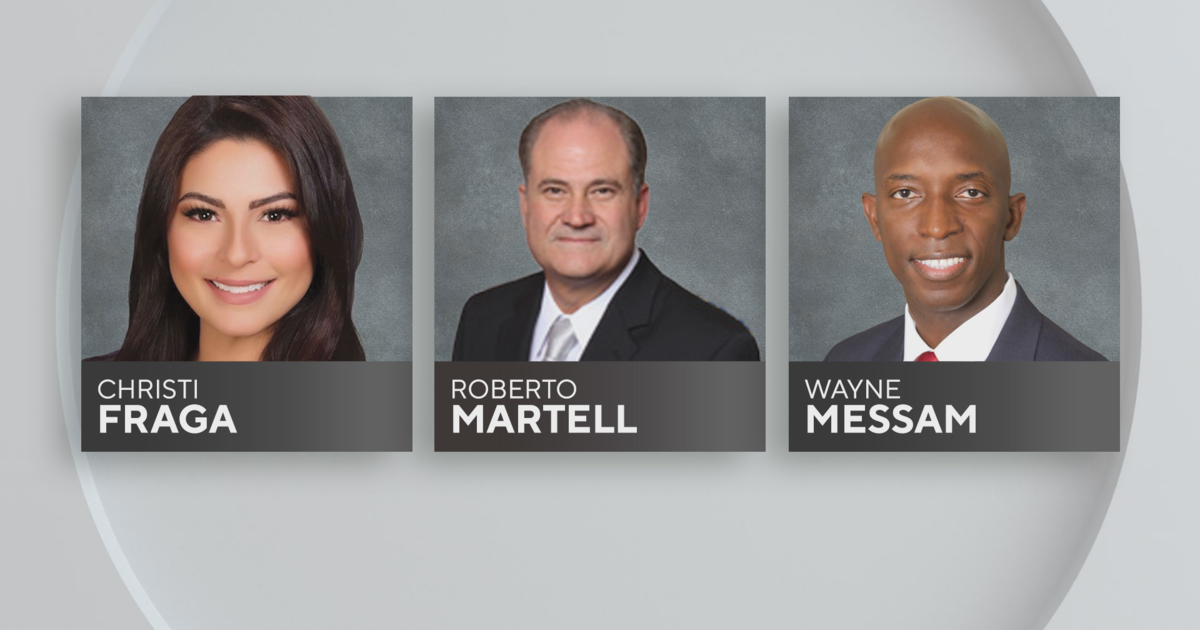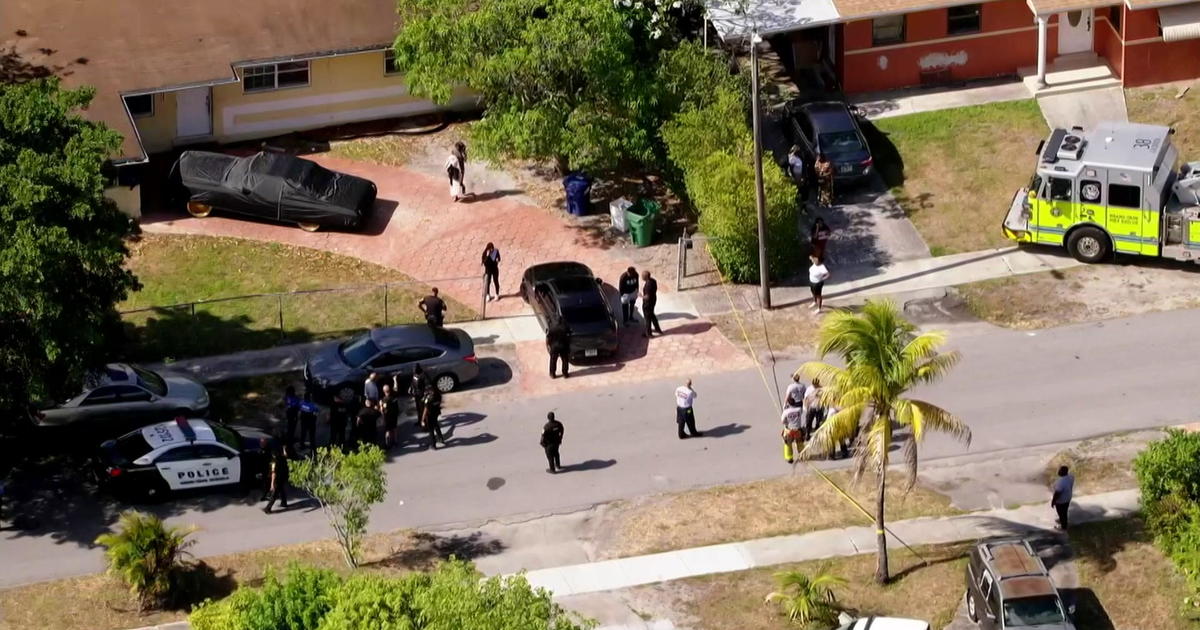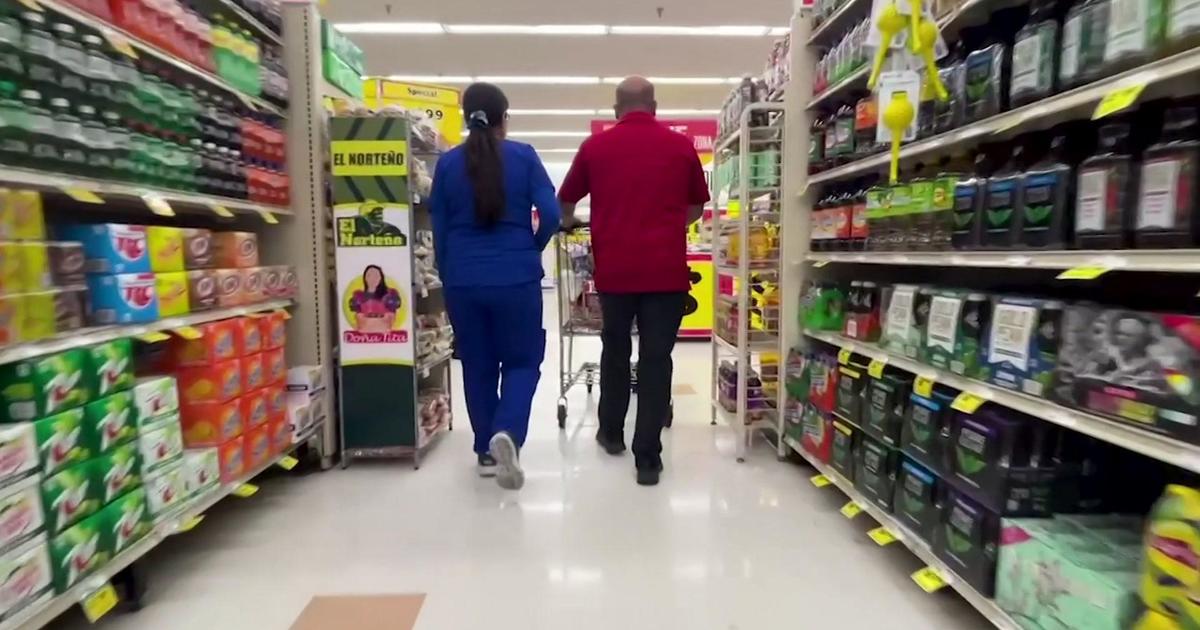'We Effectively Don't Have A Contact Tracing Program': Coalition Of Mayors Want More Coronavirus Contact Tracers In County
MIAMI (CBSMiami) -- The mayors of five South Florida cities are putting out a call for contact tracing in their communities.
Miami Beach Mayor Dan Gelber, joined by the mayors of Miami, Miami Gardens, Pinecrest, and Hialeah, said a shortage of contact tracers has allowed COVID-19 to spread rapidly throughout Miami-Dade County, which is the coronavirus epicenter in Florida.
Contact tracers are those investigators or detectives who interview coronavirus patients in order to pinpoint where they were infected and to whom they may have passed the virus.
Miami Mayor Francis Suarez made a plea at Thursday's news conference by asking the state for a minimum of 500 more contact tracers for Miami Dade cities for the safety of residents.
Watch CBS4's Ty Russell's report:
"We are asking for an immediate minimum of 500 contact tracers," he said. He said it was needed in order to make intelligent scientific decisions that would protect the safety and health of residents.
The latest one-day study found that only 17% of those testing positive in Miami Dade for COVID-19 have completed questionnaires to help the state with contact tracing.
"If 17% of the people who are tested, if only 17% of the people who are tested are reached out to or contacted, then we have no effective contact. We effectively don't have a contact tracing program in this county," said Miami Beach Mayor Dan Gelber.
"This is a vicious virus that has spread throughout our community. It is the worst spread since the start of the pandemic. There are 343 people in intensive care beds in the county and that is a high watermark. That has doubled in the last 2 weeks. There are 175 people on ventilators and that has doubled in the last two weeks."
The latest numbers are also alarming for workers at hospitals.
"For a healthcare worker, this is our war, Martha Baker said.
Baker is the workers union president at Jackson Health. She says healthcare workers and patients are in this battle together.
"Many of our nurses have been the ones holding patients' hands," she said.
The most recent daily rate released Thursday shows 33% percent of tests in Miami-Dade are positive.
"We know how to dampen the curve. We did it once already. March and April, we brought it down," Baker said. "Maybe the young 20-year-old will survive. But how many people have they infected and not even known and they're going to die next week in our hospitals."
"Just wear a mask," he said. "It does not mean that you support one political party or another. It does not mean you are showing weakness. You are actually showing strength by demonstrating you want to make things safer for someone you know or a loved one."
"If you're positive, please answer the phone. Please answer the phone and please fill out the survey. The information that you give is critical, critical for public officials like us to be able to make scientifically-based decisions for your health and the health of our community," said Suarez. "I am going to Call Mayor Gimenez. I am going to call Mayor Gimenez and tell him it is incumbent on all of us to communicate."
"If we don't stop this, people will be in their homes sick if we don't stop this, we'll be trying to figure out how to bury people," said Miami Gardens Mayor Oliver Gilbert.
"If we do not slow the spread of this disease, we can not continue to operate." Gilbert said he drove by the testing site at Hard Rock Stadium and once again was struck by the fact that the lines stretched all the way eastbound from the Stadium to State Road 441. This has been a common sight at the facility for months.
Gilbert said, "Contact tracing is information."
Hialeah Mayor Carlos Hernandez said "The evidence is that we have not had contact tracing since the beginning in the county. It is time we get together at the city and county level because at the end of the day this will fall into our laps."
Pinecrest Mayor Joseph Corradino said, "If we are going to continue to try to control this disease, we need to be able to pinpoint the information we need and make decisions that are evidence-based."
Wednesday night, Miami-Dade Mayor Carlos Gimenez and the state worked out a deal for more contact tracing in the County. Gimenez signed off on a $14 million worked out a deal that will provide an extra 250 contact tracers through the end of the year.
That would bring the total in Miami-Dade to 500 contact tracers.
The county will pay for the extra workers using federal funds from the Coronavirus Aid, Relief, and Economic Security (CARES) Act.
Despite this agreement, the Mayors would like an additional 500.
The Mayors were also asked at Thursday's news conference whether they would rule out the need for another stay at home order. They said if the current trajectory continues that could be possible in the future.



